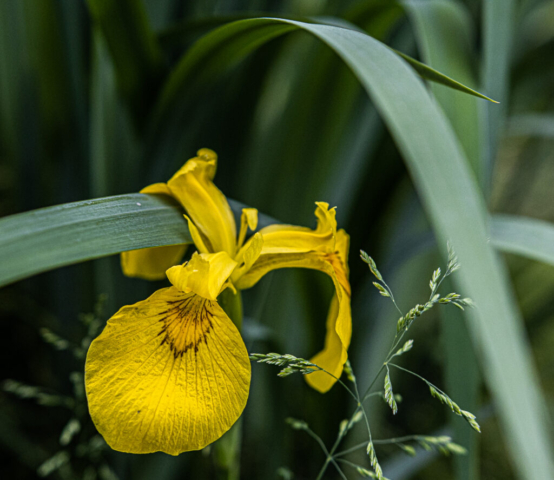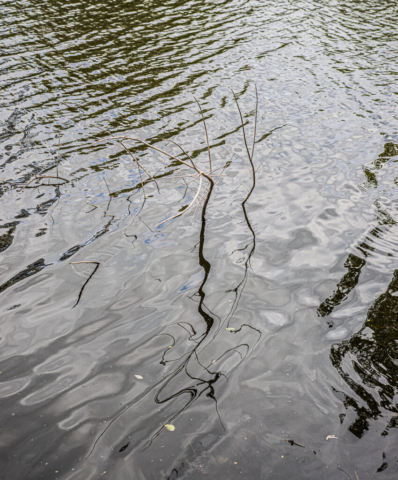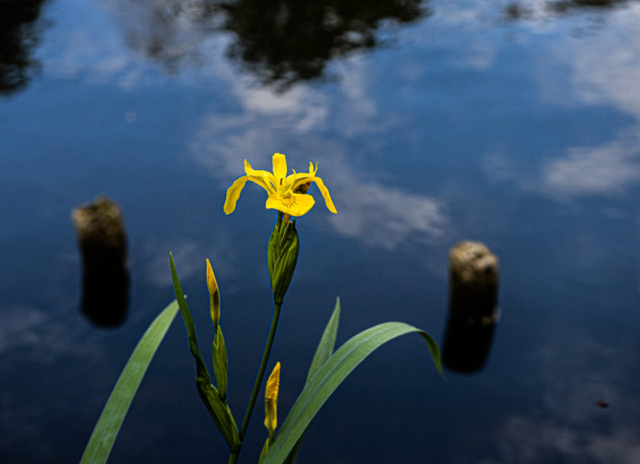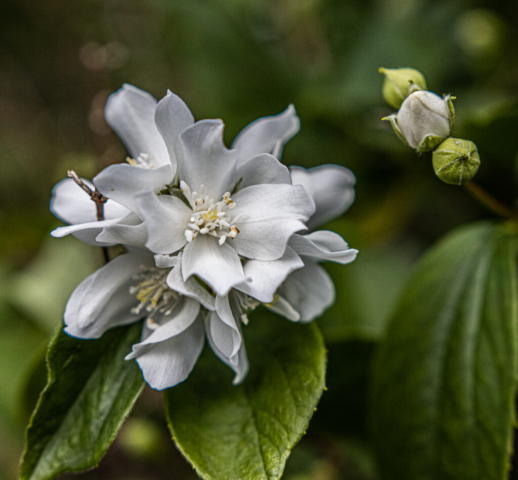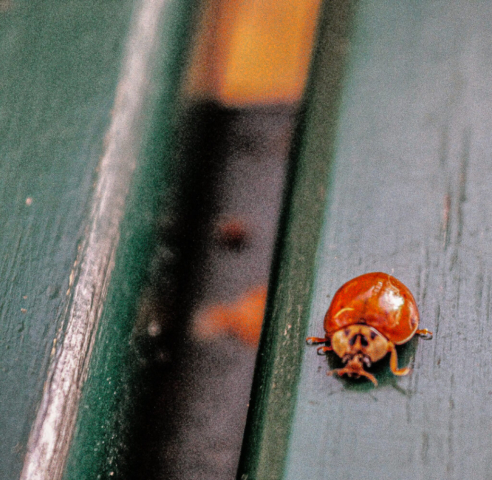Reposting, as this is a good winter dessert (despite the ice cream). Too heavy for summer.
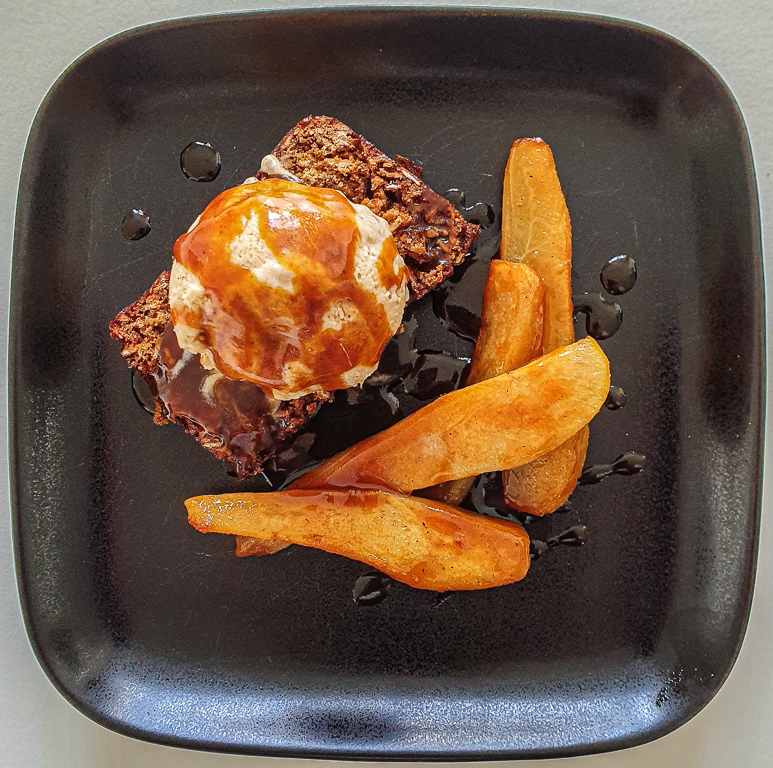
When I saw this recipe in Olive Magazine, I was intrigued, not only by the celeriac in a sweet recipe but also because I had never heard of Parkin cake before. It turns out to be a time-honoured, tried and tested classic. That shows how much I know about food.
I made some adjustments along the way. For example, for the parkin cake, I don’t like the idea of “self-raising flour” (as they insist on spelling it, although it is actually “self-rising flour” – but I have discovered that you can’t trust their spelling at all despite the fact that it is an English mother-tongue magazine). I have also translated the rather cryptic “mixed spice” into part cinnamon and part nutmeg.
Also, since I do not have an ice cream machine – I know – big mistake, but they do take up a lot of room – I have changed the procedure of finishing the ice cream slightly. I whipped the cream separately, and since I used organic eggs in a country with strict salmonella control, I skipped the bit where the egg mixture is heated up.
For the ice cream:
- 1 celeriac, peeled and finely sliced, should yield about 500g
- 300 ml whipping cream
- 700 ml milk
- 160 g golden caster sugar (I used Rewe’s bio Rohrohrzucker)
- 9 egg yolks
Heat the oven to 200C/fan. Place the celeriac slices in one layer on a baking sheet. Bake till the celeriac is dark brown. It is OK if it seems almost burnt around the edges. This will bring flavour and colour.
In a saucepan, bring milk and the baked celeriac to the boil, then take it off the heat and allow to infuse for about an hour. Then blend till smooth.
Meanwhile, in a large bowl, whip sugar and egg yolks till light and fluffy and the sugar has dissolved, then mix with the celeriac milk.
Whip the cream to soft peaks and fold into the mixture.
Cover with cling film and place in freezer. For the first couple of hours, stir regularly until almost at ice cream texture.
For the parkin cake:
- 100 g flour
- 1 heaped tsp baking powder plus a pinch of salt
- 1 heaped tsp ground ginger
- 1 tsp ground cinnamon
- 1 large pinch grated nutmeg
- 200 g oats (I used coarse or “large” oats, but the finer, smaller variety is probably better)
- 200 g golden syrup (I had some rice syrup nearing its sell-by date and supplemented with maple syrup)
- 75 g black treacle (I used Rapunzel Zuckerrohr Melasse)
- 100 dark muscovado sugar (I used Rewe’s Brauner Roh-Rohrzucker)
- 110 g unsalted butter
- 1 egg
- 1 tblsp milk
Heat the oven to 160C/fan.
Sift the flour, ground ginger, cinnamon and nutmeg into a large bowl, add the oats, and mix.
Melt the golden syrup, treacle, sugar and butter in a saucepan, until the butter has melted and the sugar has dissolved.
Pour the hot mixture into the dry ingredients and quickly mix thoroughly.
Add the egg and milk, then mix again briefly.
Pour the mixture into a buttered and lined loaf tin. The tin I used was about 25 x 9 cm, and fitted perfectly. The cake rises between 1 and 2 cm during baking. Bake for 50 minutes or until a knife comes out fairly clean. The cake should be dense and sticky.
Cool in the tin.
For the pears:
- 400 g sugar NOTE the recipe calls for golden caster sugar. I used Rewe’s Rohrohrsugar which is clearly not suited for this purpose, and the whole thing got rather messy and difficult to handle. My guess is that ordinary white sugar would do just fine.
- 4 pears, peeled, and each cut into eight wedges lengthways
- 1 star anise
- 1 vanilla pod, split lengthways
- 1 cinnamon stick
- 100 g unsalted butter
On low heat, melt the sugar in a frying pan until you have a light caramel. Don’t stir, just tip the pan till it is all melted.
Add the pears and stir gently. Beware of splutter.
Add the spices and keep stirring. If the sugar stiffens, turn up the heat a little and keep cooking until it melts again. Continue to cook until a knife can go through the pear with ease, but be careful not to overcook.
Remove from heat, then add butter and give a final stir once melted.
Pour the pears into a sieve over a bowl, to stop the pears from over-cooking, and to preserve the caramel sauce which is to be poured over the pears and icecream when serving.
Parkin cake keeps well, and gets stickier with time.
Alledgedly, parkin cake can be frozen, wrapped in cling film and tin foil, but I can’t confirm that yet.
Conclusion: Celeriac ice cream is nice, but only as a novelty and together with these other two components. I would never make it to be eaten on its own or as part of any other dessert.
I would also look at other ways to caramelize pears – in this version it was quite difficult as the sugar kept lumping up.
But star anise in a caramel sauce – why have I never thought about that – from now on I will remember that whenever I caramelize anything – sweet or savory.
























